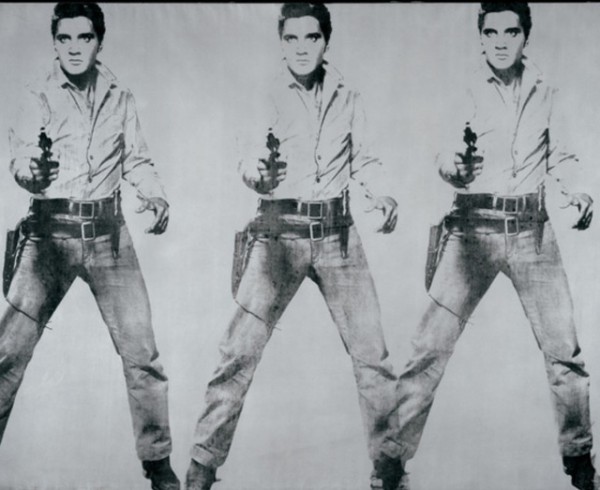Auctions
Outrage Erupts over Casino’s Sale of €100 Million Warhols
Museum directors say it “contravenes international conventions.”

Museum directors say it “contravenes international conventions.”

Henri Neuendorf

Twenty-six museum directors in Germany’s North Rhine-Westphalia have sent a petition to the regional government, demanding it prevent the auction of two works by Andy Warhol, reports Die Welt. In mid-september the German casino conglomerate Westspiel announced their intention to sell Triple Elvis (1963) and Four Marlons (1966) at Christie’s, New York in November (see “Warhol’s Elvis and Brando Will Hit the Auction Block This Fall“). The paintings are expected to fetch over €100 million ($128 million).
The museum directors’ move is the most formal to arise from a bevy of cries locally against the works’ sale. In the petition, they claim that the sale “contravenes international conventions” whose ultimate goal is to “protect public cultural heritage.” The directors fear the sale could set a dangerous precedent that could become a “controversial political issue with considerable ripple effect.”
The museums insist that it is the governments’ responsibility to ensure that high-profile art remains accessible to the public. They warn that failing to prevent the sale would damage North Rhine-Westphalia and Germany’s reputation as a “cultural country and cultural nation.”
The authors of the petition go on to accuse Westspiel of selling the artworks in order to either pay back debts or to invest in the construction of a new casino in Cologne. Reinvesting the profits from the sale into the purchase of new art would be “the only way [for the company] to avoid losing their reputation internationally,” the statement claims.
According to information from Christie’s, Westspiel bought the works in 1976 from the Zurich-based gallery Thomas Ammann Fine Art for approximately €200,000 ($255,000). The sale would thus provide a substantial return on investment.
A spokesman for Westspiel has rejected criticism of the Warhol auction. He says that a part of the profits will be donated to a local charity supporting disadvantaged children, the disabled, and the elderly.
Although the deaccessioning of artworks from corporate collections is relatively commonplace, critics in Germany are wary of the fact that it eliminates public access to unique artworks. Those artworks are often placed on display in private museums or office buildings, a practice that is supported with tax incentives. Earlier this year, energy giant E.ON’s decision to auction off Jackson Pollock’s 1951 painting Number 5 (Elegant Lady) also sparked significant protests (see “$20-Million Pollock Hits Auction Block to Shore Up German Energy Giant’s Art Initiatives“).